The weather in El Paso is now becoming warm once again after a very short "cold" winter. Even though we are still in the winter season, the nice 60-70 degree weather we are experiencing is very welcoming to the mosquito populations.
This brings up the question: Do we need to be concerned about mosquitos and heartworm disease in dogs and cats? The answer is yes. Dogs are the definitive hosts for heartworms. Cats can also be hosts for the heartworm and they will also be considered in this discussion but to a lesser degree than dogs. It is not because they are less important than dogs but because the heartworm behavior is different in dogs than it is in cats.
To begin, what is a heartworm and where does it come from?
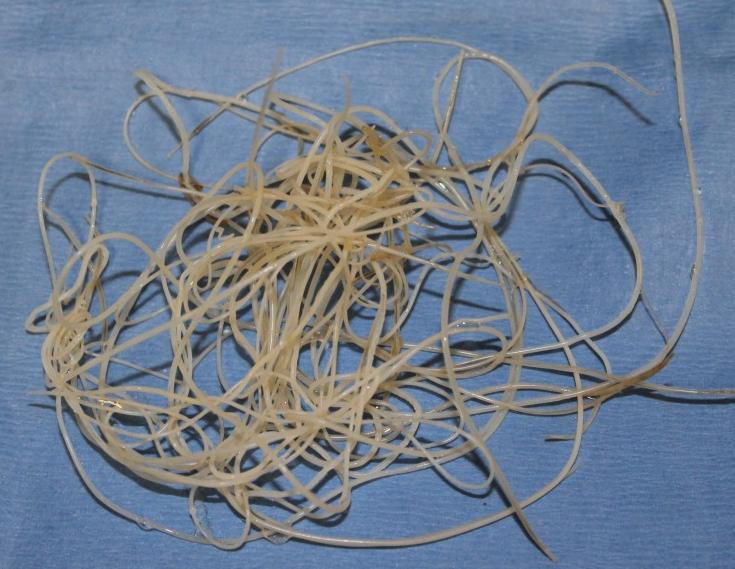
Heartworms are worms (Dirofilaria immitis) than can grow between 12 and 14 inches. They live in the pulmonary artery and sometimes in the right side of the heart. Heartworms prefer to live in the pulmonary artery where they receive their nourishment and live out their life cycle. In the pulmonary artery the worm thrives and reproduces. These worms do no produce eggs but instead they give birth to live baby worms that we call microfilariae. The L1 microfilariae circulate through the blood stream until they reach the vessels of the skin and are picked up by the feeding mosquito. After undergoing a change in the mosquito, the L3 infective larvae get deposited on the skin of the dog. They enter the body through the wound that the mosquito creates to feed on blood. The L3 larvae then molt into the L4 larvae and begin their migration through tissues until they reach the venous blood vessels. Entering the blood vessels they continue to migrate until they reach the pulmonary vessels of the lungs. During this migration, they are continuing to grow, get larger and eventually become mature adult worms. Seven to nine months post infection the worms begin to mate and reproduce and the life cycle of the worm starts again. To see an animated example please visit: https://www.heartwormsociety.org/pet-owner-resources/heartworm-basics
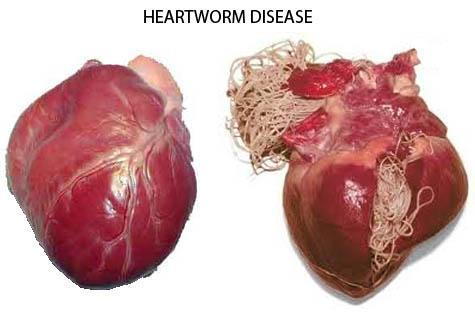
In order to understand how heartworms cause heart disease we must discuss briefly how the heart functions. Blood enters the heart via the main veins called the vena cava. Blood returning to the heart enters the right side of the heart. When the heart contracts the blood is pumped into the pulmonary arteries and into the lung tissue where it picks up oxygen to be delivered to the body. When the heart contracts again blood returns to the left side of the heart and with the next contraction blood is sent out of the heart into the blood vessels of the body to deliver its oxygen.
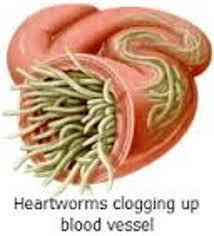
Once the heartworms arrive in the pulmonary vessels they cause the body to mount an inflammatory reaction in the vessels and surrounding lung tissue. This will lead to increased resistance within the vascular tissue resulting in pulmonary hypertension. The heart responds to the increased pressure it must work against in the pulmonary vessels by becoming hypertrophic. This means that the muscle fibers of the heart become thickened. This leads to a weaker contraction of the heart and eventually can lead to right sided heart failure. This could lead to the death of the animal.
If there are many worms in the pulmonary artery, some of the worms will live in the right side of the heart which also causes inflammation and increased resistance to which the heart must respond. The worms may also cause the blood to inappropriately clot. These clots may get lodged in other blood vessels leading to tissue damage and possibly resulting in death.
Are heartworms here in El Paso, Texas? YES, they are.
In January, here at Holy Family Pet Care, PLLC, we diagnosed a 10 year old male, large breed dog with heartworm disease. He had been coughing for several weeks and was really not getting better. He has been primarily an indoor dog for the past year or so and is taken out on short walks several times a day...and HE HAS HEARTWORMS! The first set of radiographs below are normal chest radiographs of a dog. The second set of radiographs belong to our patient. You can see the "white" in the lung tissue which normally should be black on an x-ray. The "white" is fluid (edema) and inflammatory cells that are caused by the worms. This make it very difficult to breath and results in cough.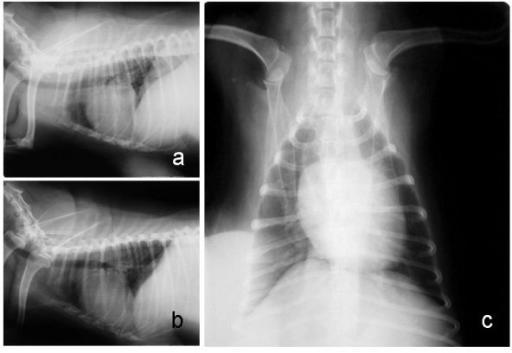
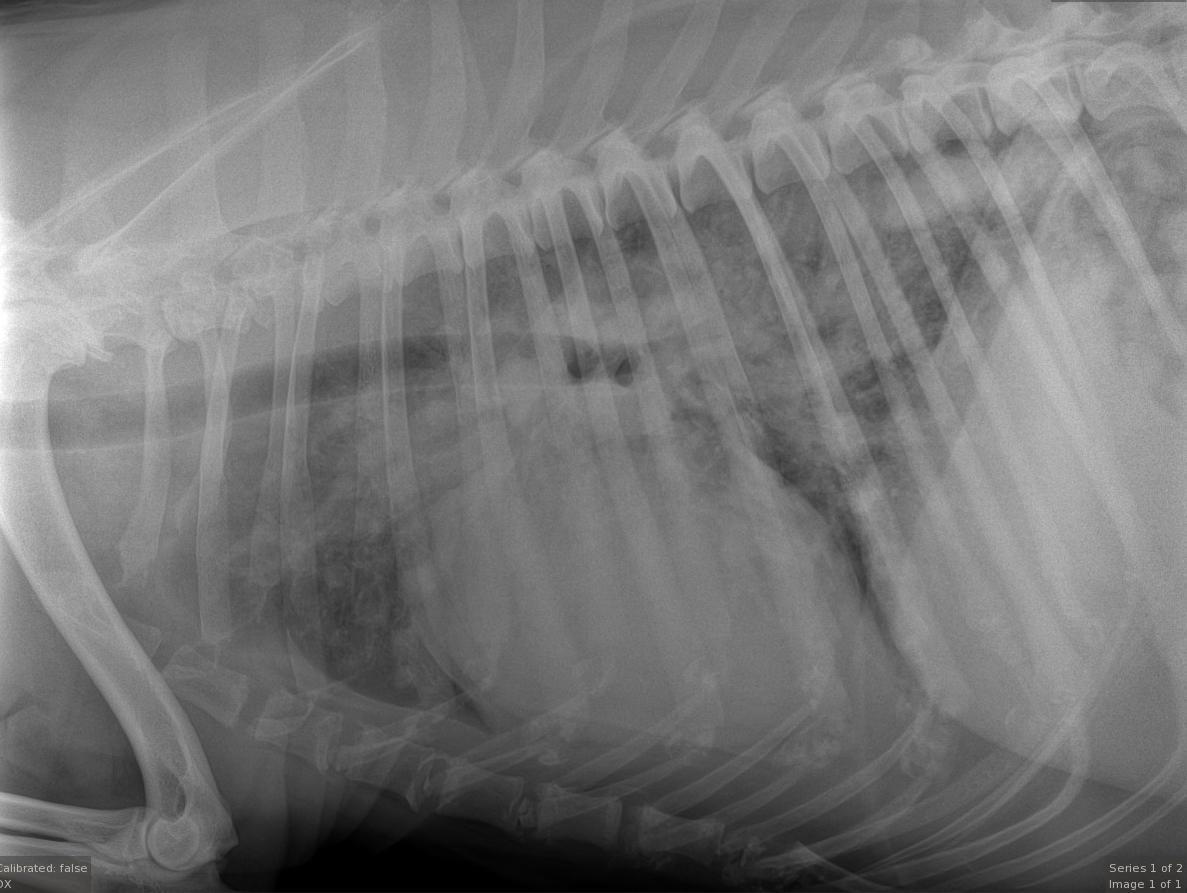
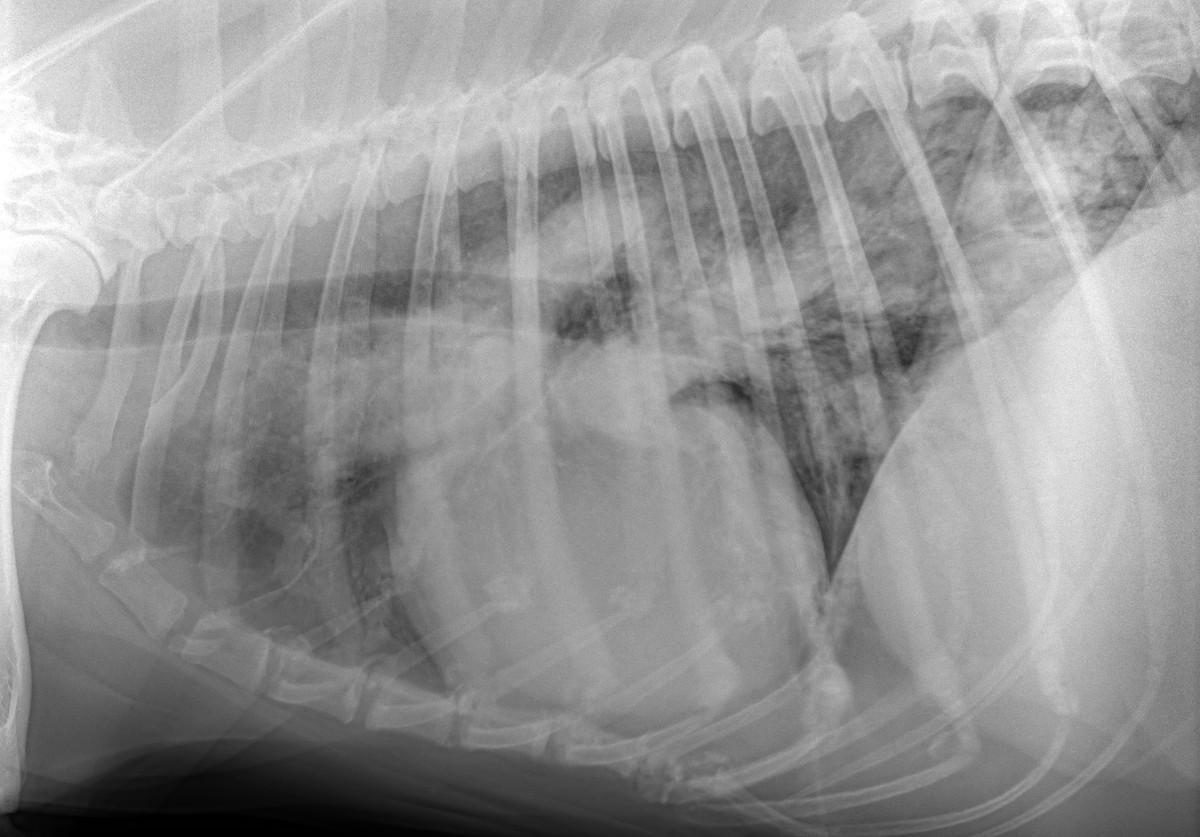
Treatment is available to kill the adult worms that are already present in the pulmonary arteries, but there is still the possibility of severe complications associated with dying worms once the medication has been given. Long term effects associated with changes in the heart as a result of heartworms can lead to heart failure in later life.
Preventing your dog from getting heartworms is easy and simple. It begins with having an annual exam and heartworm test run. This involves obtaining a small amount of blood and running a test. If your pet is negative (meaning no detectable heartworm protein) then your dog will be started on a monthly chewable tablet that will kill the L3, L4 and some of the L5 larvae migrating through the tissues BEFORE they reach the pulmonary vessel or heart.

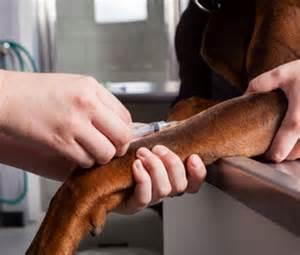
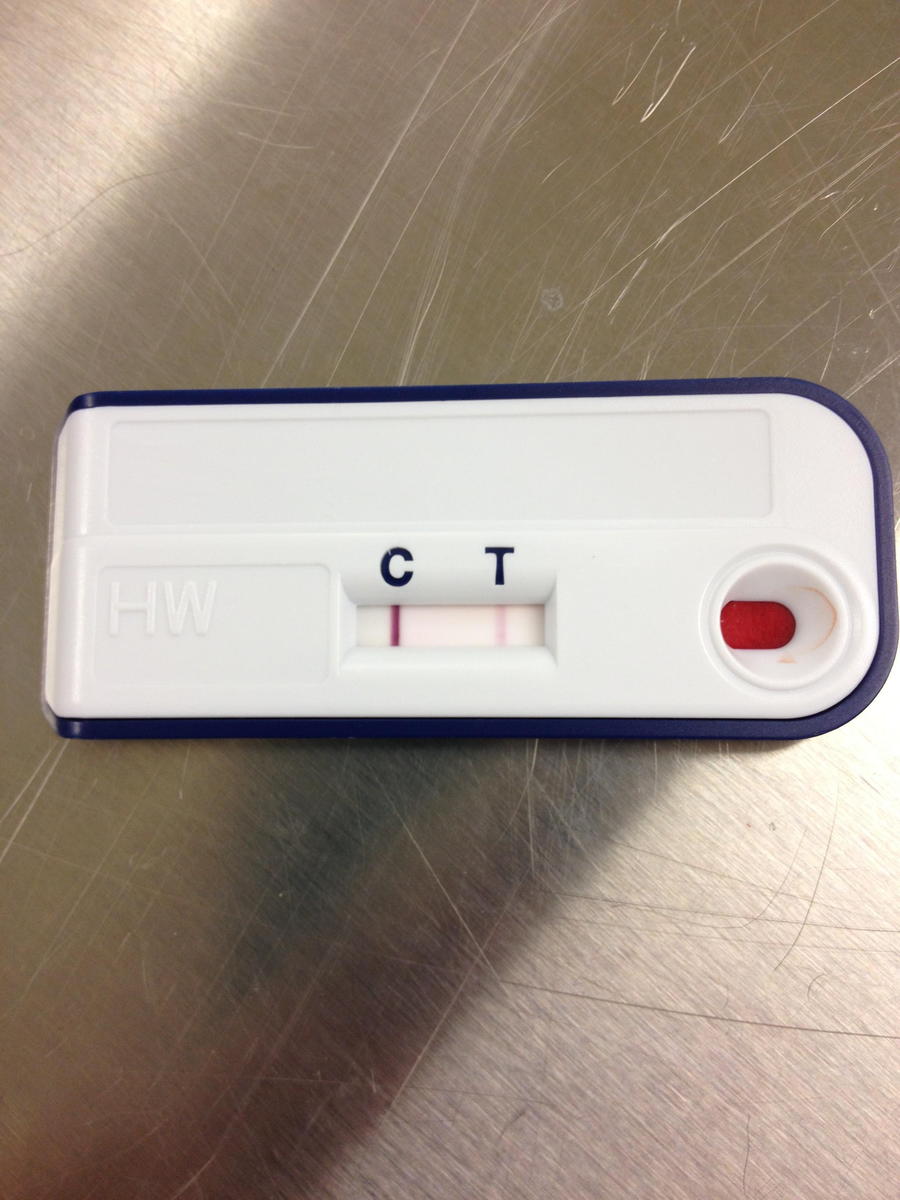
Cats can also become infected with heartworms. They are considered to be an aberrant or atypical host. Most heartworms do not survive to become adult worms in the cat. Cats with adult heartworms typically have just one to three worms. Many times heartworm disease in cats goes undiagnosed because the worms do not mature. This does not mean that the immature worms do not cause any damage in the cat. Cats tend to respond to the worms by producing a dramatic inflammatory response which in some cats can be fatal. The medication used to treat heartworm infections in the dog cannot be used in the cat, so prevention is the only means of protecting cats from the effects of heartworm disease.
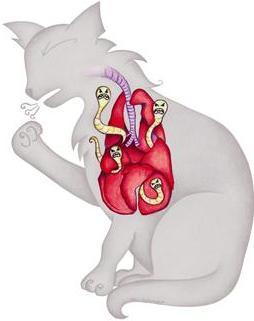
Let Holy Family Pet Care, PLLC help you to prevent your dog or cat from getting heartworm disease. It is in El Paso, Texas and heartworm prevention is necessary year round here!
Call Holy Family Pet Care, PLLC to schedule your pet's veterinary wellness visit and heartworm test today.
If you have questions, Please call us at 915-532-7387. We are here to help you and your pets!
Dr. Melinda Martinez
